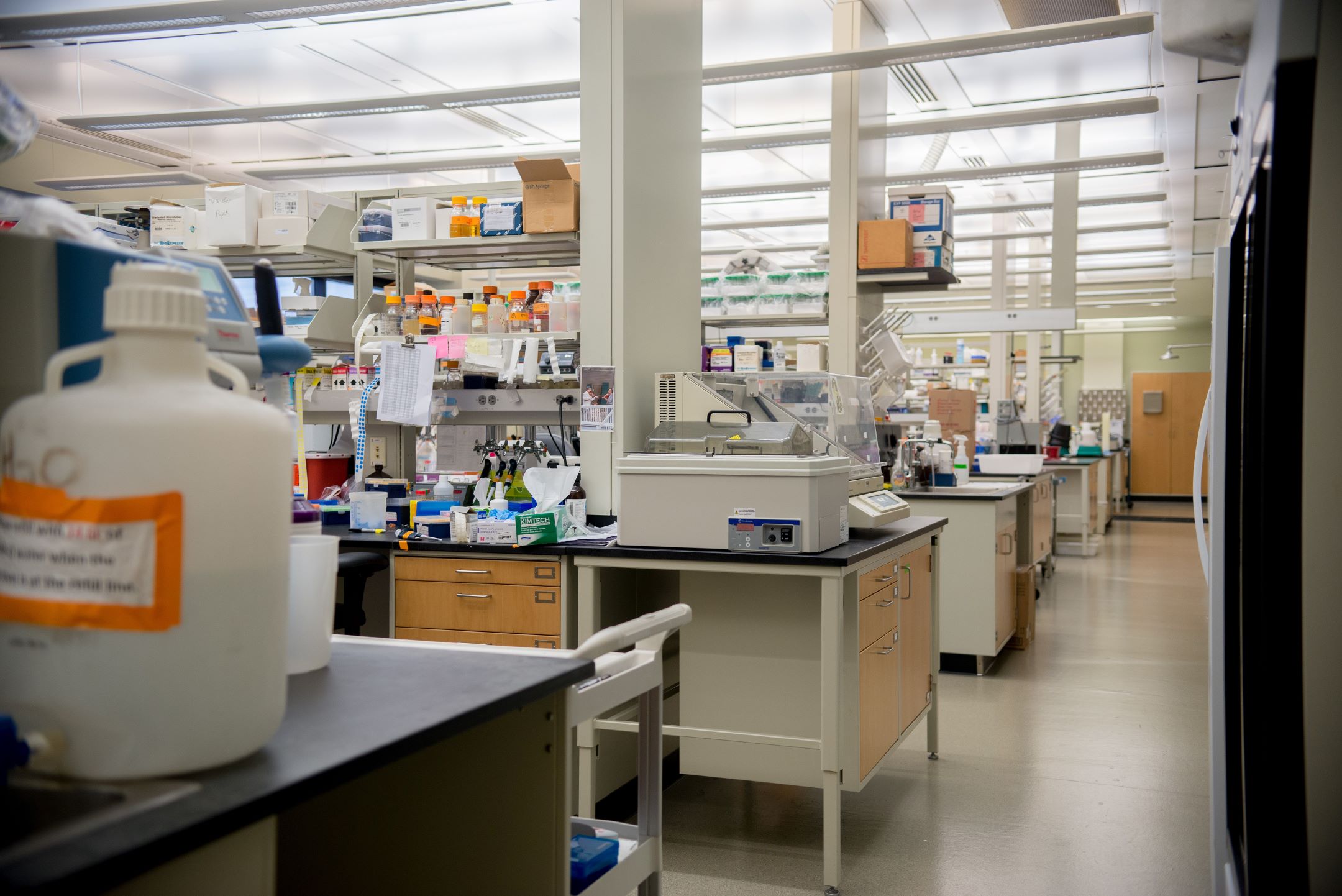It All Starts in the Lab
February 18, 2025 · Baton Rouge, LA
Dr. Jason Collier and Dr. Susan Burke are partners in work and life
Each day when Dr. Jason Collier arrives at his office, he sees a poster of a child with hundreds of needles across their arms and legs. The image represents how many insulin shots that child would need over a several-month period to control their blood glucose.
“That’s a very big motivating factor to solve the problems that are in front of us,” he says.
Jason and his wife, Dr. Susan Burke, are both researchers at Pennington Biomedical Research Center, where they share a unique partnership as a married couple and researchers of diabetes. Their individual expertise spans critical areas of diabetes research. Together, they embody the power of collaborative science in tackling complex health challenges.
As director of the Immunogenetics Lab, Susan explores the mechanisms through which beta cells—cells in the pancreas that produce insulin—help regulate blood glucose levels.
“Every groundbreaking discovery that we have in medicine, it’s important to remember that it all started in the lab,” she says.
Jason, director of the Islet Biology Lab, studies how the immune system targets beta cells, a key factor in the development of type 1 diabetes.
“We try to understand how the body’s immune system attacks that cell and limits its function and reduces its total number that leads to this type of diabetes,” he says.
Both emphasize the collaborative environment at Pennington Biomedical, vital for advancing both basic science and clinical research.
“Pennington Biomedical is a truly unique institution, because we can take a research question and study that concept from cells to society,” says Susan.
A core principle that drives the couple’s work is the celebration of small milestones in research.
“Each individual experiment could be thought of like a piece for a 10,000-piece jigsaw puzzle,” says Jason. “Eventually, when the picture comes into focus, that’s something that potentially could be targeted as a therapy to help treat a disease.”
Susan and Jason’s partnership extends beyond their professional roles.
“I think when you have two scientists who are married to each other, it’s hard to not talk about science outside of the lab,” says Susan. “It’s quite common for us to just bring our work home.”
Together, they not only push the boundaries of diabetes research but also embody the spirit of mentorship and collaboration that defines Pennington Biomedical. Their commitment to science and training of the next generation makes them a powerful force in the ongoing battle against diabetes.
For more information contact:
Joe Coussan, Media Relations Manager, joe.coussan@pbrc.edu, 225-763-3049 or Ernie Ballard, Senior Director of Communications & Marketing, ernie.ballard@pbrc.edu, 225-263-2677.
About the Pennington Biomedical Research Center
The Pennington Biomedical Research Center is at the forefront of medical discovery as it relates to understanding the triggers of obesity, diabetes, cardiovascular disease, cancer and dementia. Pennington Biomedical has the vision to lead the world in promoting nutrition and metabolic health and eliminating metabolic disease through scientific discoveries that create solutions from cells to society. The Center conducts basic, clinical and population research, and is a campus in the LSU System.
The research enterprise at Pennington Biomedical includes over 600 employees within a network of 44 clinics and research laboratories, and 16 highly specialized core service facilities. Its scientists and physician/scientists are supported by research trainees, lab technicians, nurses, dietitians and other support personnel. Pennington Biomedical is a globally recognized state-of-the-art research institution in Baton Rouge, Louisiana. For more information, see www.pbrc.edu.
Pennington Biomedical Research Center
6400 Perkins Road
Baton Rouge, LA 70808



